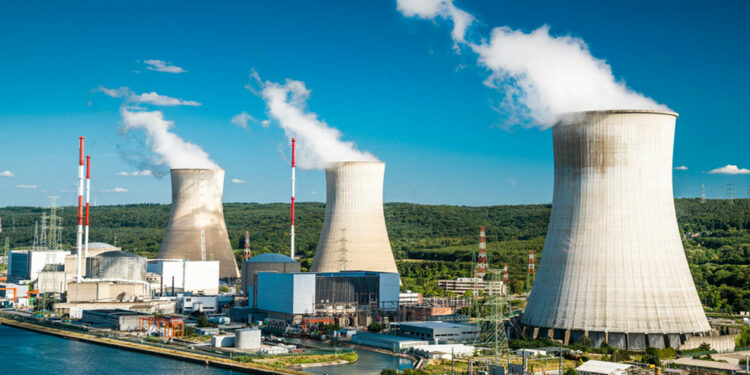Ghana Advances Nuclear Energy Programme with International Collaboration and Safety Assurances
Ghana is steadily advancing its ambitions to integrate nuclear energy into its power generation mix, a move that could significantly reshape the nation’s energy landscape.
With a current installed capacity of 5,454 megawatts, the West African nation aims to add approximately 1,000 megawatts from nuclear sources by 2034, positioning nuclear power as a cornerstone of its long-term energy strategy.
This initiative is being spearheaded by the Ghana Atomic Energy Commission (GAEC), in collaboration with international partners, including the Japan Atomic Industrial Forum (JAIF) and the International Atomic Energy Agency (IAEA). The Ghana Nuclear Programme Infrastructure Development agenda is central to these efforts, with the nation employing the IAEA’s milestone approach to ensure a robust and methodical implementation process.
Recently, a delegation of Ghanaian officials, led by the GAEC, visited the Tsuruga Nuclear Power Plant in Japan. This visit was part of a broader effort to observe best practices and glean insights from one of the world’s most advanced nuclear power industries.
Mr. Toshihiro Yamakawa, General Manager of JAIF International Cooperation Centre, who guided the delegation, underscored that Ghana is uniquely positioned to develop its nuclear capabilities. According to Yamakawa, Ghana’s pre-existing infrastructure, combined with decades of experience in nuclear research and regulation, distinguishes it from other countries embarking on similar paths.
Ghana’s nuclear journey is not without precedent. The country’s first president, Osagyefo Dr. Kwame Nkrumah, laid the foundation for the Ghana Atomic Project in 1963, culminating in the establishment of the GAEC in 1964.
This early start, while modest in its initial ambitions, provided the groundwork for the construction of a research reactor in 1994, developed in cooperation with the IAEA and supported by the Chinese government.
Despite these advances, public apprehension remains a significant hurdle. The specter of nuclear disasters, particularly the 2011 Fukushima accident in Japan, looms large in the collective consciousness. However, experts and officials involved in Ghana’s nuclear program are keen to reassure the public.
Following the Fukushima incident, Japan has implemented stringent safety standards, which have since become a global benchmark. Yamakawa emphasized that the top priority in the nuclear industry is safety, noting that modern technologies have been significantly enhanced to prevent such accidents.
In Ghana, efforts to build public trust are ongoing. The Nuclear Power Institute (NPI) of GAEC is launching a public education initiative, the “Nuclear Information, Communication and Education (NICE) campaign,” aimed at demystifying nuclear energy and addressing safety concerns.
This is complemented by the work of Nuclear Power Ghana (NPG), the entity responsible for owning and operating the proposed nuclear plant. NPG is actively engaging with various stakeholders, including state agencies, industries, and academic institutions, to foster a broader understanding of nuclear technology and its benefits.
The broader context of nuclear energy development in Africa is also noteworthy. Several African nations, including Kenya, Morocco, and Namibia, are pursuing nuclear energy as part of their strategies to close the electricity supply gap. Burkina Faso and Uganda have signed agreements with Russia and China, respectively, to construct their first nuclear power plants.
For Ghana, the successful implementation of its nuclear energy program could provide a reliable, low-carbon baseload power source, crucial for sustaining economic growth and development. However, as Mr. Ernest Owusu-Afari, a member of the NPI/GAEC Board, pointed out, public acceptance remains critical.
Continuous education and transparent communication will be essential in aligning public perception with the technical realities of nuclear energy. As Ghana edges closer to realizing its nuclear ambitions, the balance between innovation and safety will be paramount in determining the program’s ultimate success.









Atomic Energy is the best way for Ghana to develop its industries. We need it like yesterday.